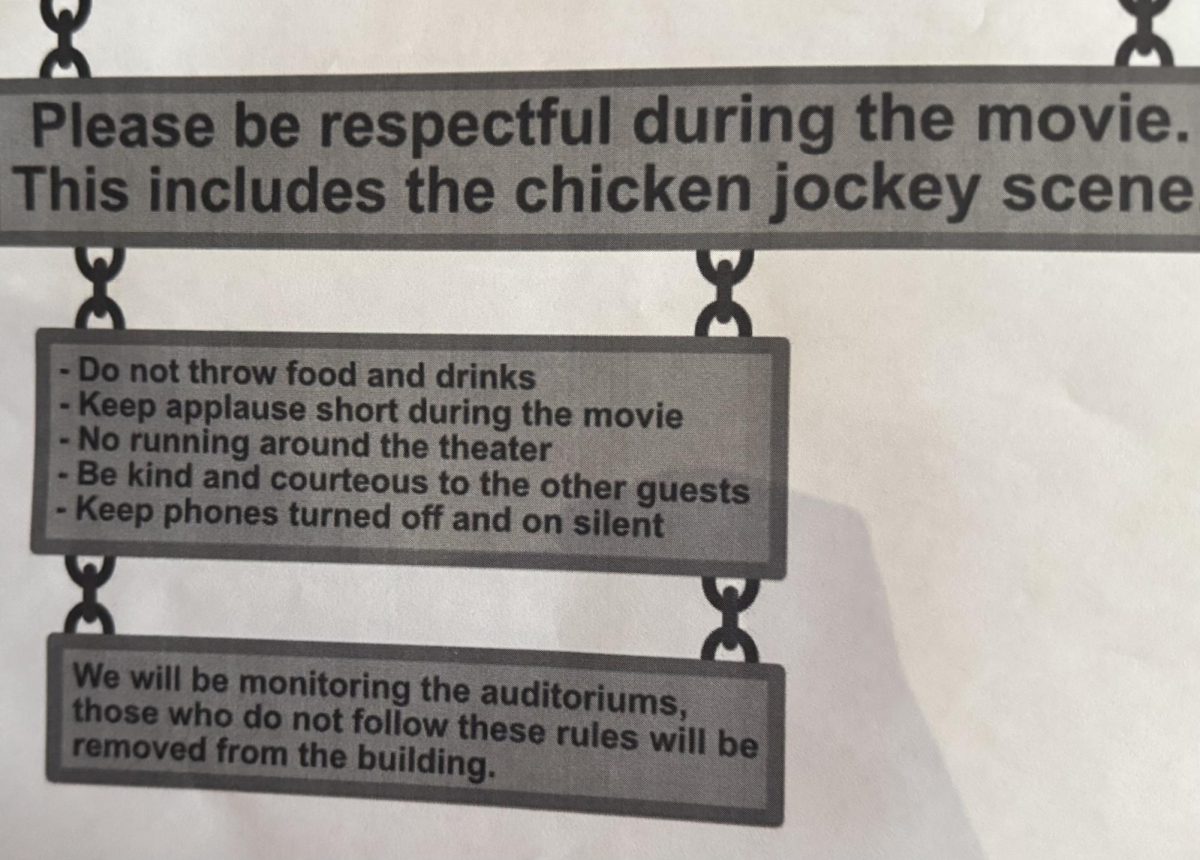Earlier this semester I was removed from my elected position as editor-in-chief of The Mac Weekly by the administration for False Information and Failure to Comply. My final semester at Mac quickly became my most difficult — I felt abandoned by the people and the place that had nurtured me, that I had learned to love and that, I thought, loved me back. I was cast out from a group which I had grown and grown with since my first year here and The Weekly lost the leadership and experience of both myself and the fall editor-in-chief.
I wish to echo sentiments expressed in the Weekly’s courageous and powerful staff editorial published on March 6 — that the removal negatively impacted the paper, that the structures that facilitated this occurrence are outdated and exclusionary, and that viable solutions to prevent this from happening again exist, and can and should be implemented as soon as possible.
Throughout the semester I’ve been asked by friends, acquaintances and my Conduct Board itself if I sincerely thought I could “get away with it” — if I believed that somehow I might, despite administration objections, assume my position as editor-in-chief. That the administration might never “find out,” that I might escape unscathed.
My answer has always been no. As early as last August I knew that me becoming chief would invite conflict. Yet simultaneously, I have always felt as if I had no choice but to assume chiefship regardless. I was trapped.
Like every other editor-in-chief, I was elected democratically by the editorial staff of The Mac Weekly. Granted, I ran unopposed, but this is often the case in chief elections — the process more so indicates the approval of the staff of its chief. The integrity of this process is what I assume is referred to by the Weekly’s title as “Macalester’s independent student newspaper since 1914.” None may be made chief against their will, and none may helm the Weekly without the staff’s consent. I was thus the only one who could be chief.
And yet, as a student worker, I am eligible only to receive a certain amount of money from and work a capped amount of hours for the school. There is a stipend for the editor-in-chief, a stipend which, in order to receive, I would need to quit the Mellon Fellowship, in which I’d been working on a research paper since my sophomore year. Through the fall chief, I corresponded with the administration to discuss our options (I felt more comfortable and confident using the fall editor as mediator since, when I attempted to discuss similar pay conflicts between being a Mellon Fellow and an RA my sophomore year, I was unable to even secure a face-to-face meeting).
I volunteered to be chief for free. I was told this was impossible. We tried to ascertain the nature of the stipend money, who it belonged to, where it came from, and if the Weekly could liquidate it into resources for the Weekly as a whole, perhaps to purchase snacks for staff or add more pages in color. Again, we were told this was impossible. Through it all I never quite understood why.
The fall chief, ineligible for work study, exceeded the hours-worked-cap by being chief and a TA all at once, receiving two paychecks from the school. The administrators admitted that, while this technically broke the rules, they would allow it. Similar situations occurred across campus, for example, in the case of paid positions with WMCN. But in the case of me, a student actually eligible for work study, it wasn’t allowed. It was forbidden.
The administration demanded someone be paid for editor-in-chief. I was ineligible to be paid. Yet I was the only one chosen to be chief by the allegedly independent paper. It was a triple bind. The only way forward, the fall chief and I decided, was to let the administration continue sending checks to the fall chief while I performed the duties I had been elected to do. Within a month the fall chief and I were subsequently stripped of our titles and barred from the Weekly, even from entering the office.
What do these rules, and this outcome, mean for student voices at Macalester? Time and again, throughout this saga, the editor-in-chief stipends were touted as a means of making it easier for students “of a certain background” to serve as chief. In practice, however, it has done the opposite.
As it is now, the pay system surrounding editor-in-chief forces any student receiving work study to, for the one semester they will act as chief, quit their other on-campus job. By the time they are a junior or senior, eligible to assume the role of chief, many work study students have worked their way into higher level jobs not easily left behind. Would an RA be expected to leave their community behind midway through the year should they be elected chief?
The Mac Weekly operates as a public forum for the community. As its leader, the editor-in-chief plays a large role in making that discourse accessible to the public. What does it mean that the editor-in-chief is, most likely, not a work study student? What does it say about what types of student perspectives are represented when the editor-in-chief can never be an RA or a Mellon Fellow?
The fall chief and I have long been aware of The Mac Weekly’s diversity problem. Our staff, like Macalester itself, is largely white and upper-middle class. Over the summer the fall chief and I met with DML staff to brainstorm ways our paper could be more accessible, equitable and inclusive, leading us to institute inclusive writing policies, revamp interview training, and assign “beat reporters” to the DML and other areas of campus. I’ve heard firsthand from many that the paper has done a better job of making more students feel included this year. Before my removal, I could foresee the Weekly someday turning into an inviting space for a wider array of students.
Not so anymore. I am a Mellon Fellow — an award aimed specifically at students of color. What does it say to younger/prospective students of color and students eligible for work-study that the first editor-in-chief who holds both of those identities was removed by the administration? It’s not a good look.
The sad irony in all of this is that I’m not even poor. Both my parents are homeowners and went to graduate school. Is our wealth gap here so dizzyingly deep that I am the first chief this has happened to, that even I, who in many ways have been groomed my entire life to assume a leadership position such as this, was deemed ineligible?
The application of these rules, although by the book, are also the most tangible examples of structural exclusion I have ever personally encountered — especially when contrasted with the lax enforcement of these rules for, among other students, the fall chief, who did not receive work-study.
Coming face to face with exclusionary structures is especially painful at Macalester. We all know that institutions are clumsy, impersonal and cold. And yet, institutions are composed of individuals. In this tight community, we know the faces of those individuals well. Through my roles as an RA, a speaker for This Matters at Mac, a member of Lectures Coordination Board and my participation in many orgs and events, I came to feel a great warmth for the individuals in the administration. That warmth has faded, however, as time and time again, over the past eight months I’ve felt dismissed, confused and severely unsupported by the administration, even as I struggled to find a way to make my role as chief permissible (again, I volunteered to do it for free). This has been, by far, my coldest spring at Macalester.
I’ve felt alone. I’ve felt bitter. I’ve considered many things — among them never leaving my room, and writing or speaking about this journey. I’ve felt like giving up on Macalester — on making it understand me, and finding a way to understand it. Yet still I write.
It is true that to give up on one’s community is sometimes an act of survival. But, if I’ve learned one thing through my struggles, personal, professional and academic, it is that to resign ourselves to accepting an unhappy home is in a sense a derogation of our own self-love. We always deserve respect and a chance to make our communities a better place.
Macalester’s students deserve the best independent paper possible, and The Mac Weekly deserves the administration’s support in creating that paper. As long as these exclusionary rules and stipends exist, such a paper remains impossible.
No one becomes chief for the money. We become chief because we love our peers, love telling the stories of our community. The fall chief and I interviewed editors-in-chief, past and present — none of us did it for the money. So why not do away with the stipend entirely? If the administration still feels the need to incentivize quality performance, why not make the chiefship something done for credit, or something akin to an internship? Why not give the Weekly a real staff advisor? If, as I was told by the administration, a student needs that stipend in order to act as chief, they could then apply to receive that stipend much the same way students on work study can apply for a paid internship.
Obviously there are logistics that’d need to be sorted out, but the Weekly, as the paper published by and for the students, can definitely be a special case. Perhaps more directly linking the editor-in-chief role with the internship program can provide greater clarity and oversight to the role as opposed to the messy and murky web of rules that govern it now.
The year is drawing to a close. Major players, both in the student body and in the administration, will soon be leaving Macalester. But I don’t want this issue to die. I know that the stellar staff of the Weekly will continue to ask the hard questions. I hope that those students and administrators of tomorrow will arrive next year willing to tackle this issue. Macalester needs a student paper it can count on, and the Weekly staff need to know that is respected by the administration — that the Weekly’s leaders won’t be plucked from its ranks mid-semester, that they can be trusted to do the jobs they have been chosen and trained to do.
Right now, Mac, we don’t look too good. We champion engagement and diversity, and yet our newspaper — a publication that can perhaps best represent our ideals to the outside world — has fallen victim to discriminating and unclear practices. If we change, we can be so much better; not just free of scandal but an institution that embodies its values, that produces graduates not weary, but proud.
But we can’t let this type of practice continue. We can’t have a paper whose will is overridden by administrative bureaucracy. We can’t keep taking our most passionate students, students who burn to share their unique light with their community through making bonds and telling stories, and freezing them out in a great, white cold.







Diana Smith • Sep 10, 2019 at 9:52 pm
Great weblog right here! Additionally your web site so much up very fast! What host are you the use of? Can I get your associate link on your host? I want my website loaded up as quickly as yours lol
Bernadette King • Sep 6, 2019 at 5:06 am
This website is containing a pleasant information of comical YouTube video lessons, I loved it a lot.